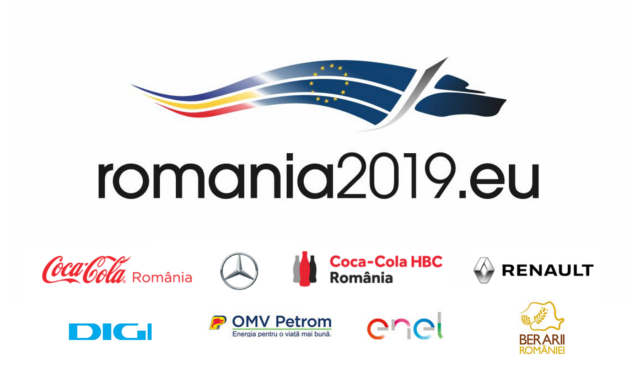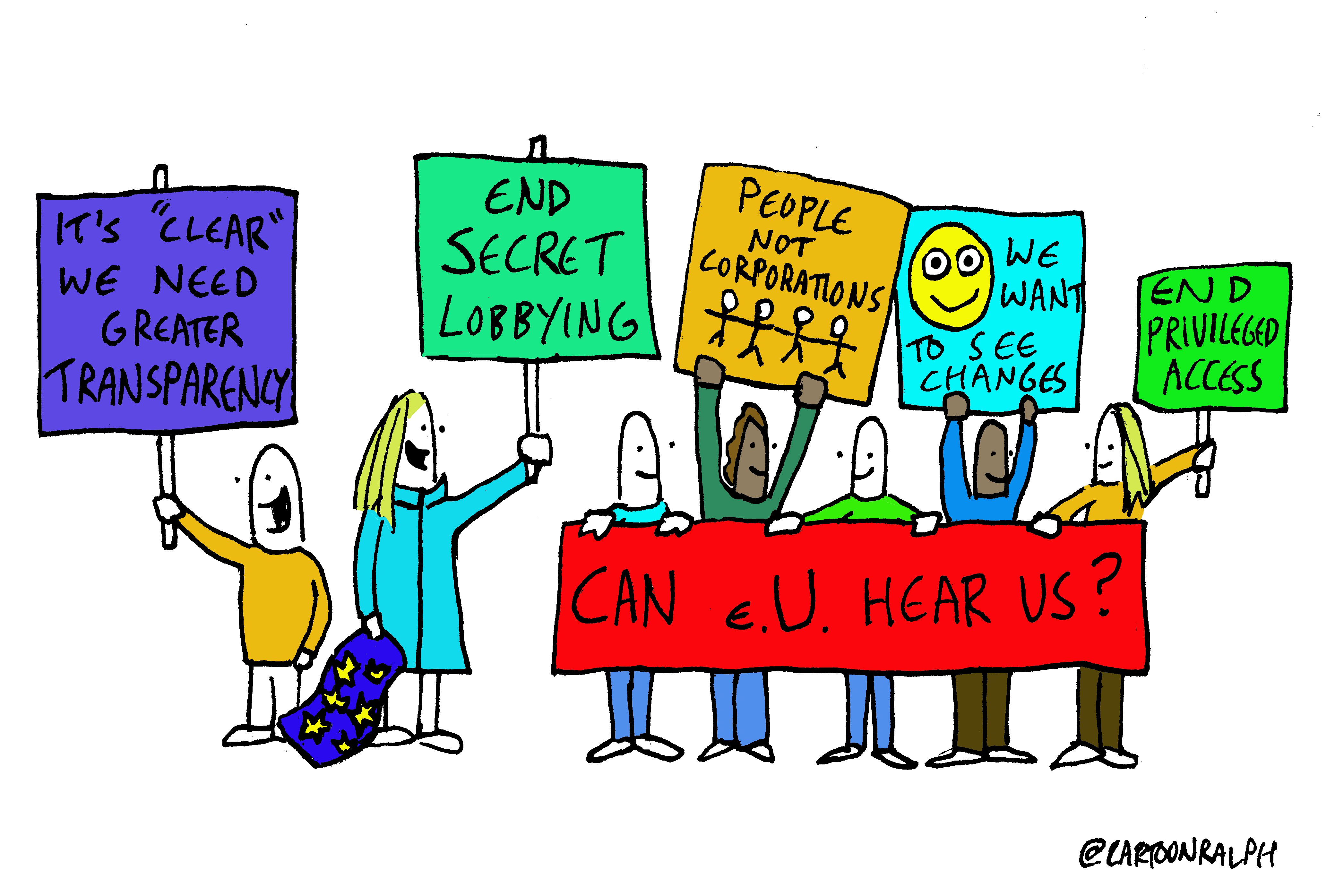Is anyone really surprised? Transparency is not a quality of an undemocratic institution.
Corporate Europe Observatory is a research and campaign group working to expose and challenge the privileged access and influence enjoyed by corporations and their lobby groups in EU policy making.
Cross-posted from Corporate Europe Observatory
EU member states have recently been discussing how to open up their decision-making to more public scrutiny, especially in their legislative forum, the Council of the EU. The Council plays a crucial and powerful role in agreeing new EU rules and regulations, but has been compared to a “black box” by the EU’s own Ombudsman when it comes to transparency. Our Captured states report shows how this opacity provides a major advantage to corporate lobbyists who typically have the significant capacity and resources required to unravel, understand, and influence member states to push for new EU regulations in their favour. This is a deep-seated and long-standing problem with governance in the EU, and tackling it would require a revolution in how the Council operates. Sadly the current reform proposal is far too unambitious, and with the whole process now on hold due to a lack of agreement between member states, real progress seems far off.
Captured states
The Council is a notoriously opaque institution; last year the European Ombudsman accused it of “maladministration” following an inquiry into the way it handles proposals for new laws. In particular citizens find it nearly impossible to track and influence the role of member state officials in Council working parties, which is where the detailed work on new policies and laws takes place. By contrast, corporate lobbies with time and money can run effective and targeted direct lobbying campaigns focused on member state officials and ministers to influence legislation. Such campaigns have been observed multiple times in recent years, including: the finance industry successfully shifted the French Government from a supportive positive position on the proposed Financial Transactions Tax (Robin Hood Tax) to a lukewarm one, effectively consigning the proposal to the deep-freeze; the draft ePrivacy regulation has seen lobbying by the data, advertising, and telecoms industries which successfully blocked progress, despite MEPs demanding robust action; the German Government blocked reform to EU gas rules because it prefers to push the controversial, industry-led Nordsteam2 gas pipeline. These are just a few examples of the depth and breadth of corporate influence on Council decision-making, and while transparency alone will not be enough to change this, it is an essential first step.
For more information read Captured states: when EU governments are a channel for corporate interests
Finland’s openness agenda
How can citizens keep their national government accountable if they cannot find out which positions their government takes in Brussels? In recent times there has been growing pressure to tackle this key element of the EU’s democratic deficit from the Ombudsman, MEPs, and civil society. The current rotating Council Presidency, Finland, inherited a pre-existing reform process which aimed to improve transparency around the Council’s important role in discussing, agreeing, and signing-off on EU legislation. Rather ironically, this process has been largely conducted behind the scenes and Corporate Europe Observatory has been refused access to the details of the positions adopted by member states, but the Finnish Presidency has nevertheless promised to make Council transparency a priority.
In September, the Finnish Government put forward a new proposal to “implement some pragmatic and well-balanced measures to make the Council’s work more open and understandable to citizens”. On the Finnish agenda: opening up more Council ministerial meetings to the public, improved communications, and making more documents proactively available, including some relating to the trilogue phase of decision-making (the secretive, tripartite legislative negotiations with the Commission and Parliament). As a signal of its intentions, in September, the country organised a public event to discuss both legislative transparency and access to documents.
On the lobby transparency front, Finland appears to be trying to practise what it preaches. The country’s Brussels-based Permanent Representative and Deputy have begun publishing a list of their lobby meetings, and interestingly all of Finland’s ministers are also publishing information about their lobby meetings when they concern EU decision-making during the Presidency.
But while it is certainly a step forward to have these issues prioritised by a Council Presidency and to see concrete initiatives being proposed, there are two fundamental problems.
Problem 1: Lack of ambition
There is a lack of ambition in the proposals being made. They do not meet all the recommendations made by the European Ombudsman in her hard-hitting report which MEPs endorsed with a large majority.
Most notably, the Finnish proposal and other earlier Council discussions on the matter have nothing to say about increasing transparency in the Council’s working parties and other preparatory bodies, which are where the EU member states thrash out a common position on a legislative proposal. These meetings are not minuted and crucially no official records are kept of which member state advocated which position. The European Parliament has made clear what the Council has to change: “[The European Parliament] deplores the fact that, unlike committee meetings in Parliament, meetings of the preparatory bodies of the Council as well as the majority of debates in the Council are held in camera [in private]; believes that citizens, media and stakeholders must have access by appropriate means to the meetings of the Council and its preparatory bodies, including via live- and web-streaming, and that the minutes of these meetings should be published in order to ensure a high level of transparency in the legislative process.”
Additionally, earlier this year, nearly 100 MEPs demanded that Finland’s Presidency eschew the dodgy practice established by almost all recent predecessors of accepting corporate sponsorship of the Council Presidency. But in fact, the Finnish Presidency accepted sponsorship from corporate giant BMW and has been rightly clobbered in the media for doing so.
Now the European Parliament’s Budgetary Control Committee has expressed its concern about Presidency sponsorship arrangements. And the European Ombudsman is now investigating the outrageous sponsorship of Romania’s EU Presidency.

But the Presidency-sponsorship issue goes deeper than a bit of red-faced embarrassment; it is a bellwether issue. If a member state doesn’t see the danger involved in accepting corporate sponsorship for EU Presidencies then it is unlikely to recognise the risk of corporate capture, or at least corporate influence, of EU decision-making, including in the Council. And if it doesn’t recognise this problem, then it is unlikely to adopt the degree of ambition and urgency required to both open up decision-making and to really challenge corporate influence.
Problem 2: Some allies, but too many countries afraid of transparency
Another, fundamental barrier to Council transparency reform remains: a majority of member states are not yet supportive of even mild changes.
Finland and a further nine member states are known to support greater transparency around the Council’s legislative work. Their position was crystallised in a so-called non-paper by the Netherlands, released earlier this year and which has since gathered the support of Belgium, Denmark, Estonia, Ireland, Latvia, Luxembourg, Slovenia, and Sweden. In particular, these countries have called for more transparency at the trilogue stage and for “more uniform recording of the main political lines of discussion within the Council and national statements”, which sounds promising. Perhaps it is no coincidence that these are all relatively small countries within the EU; maybe they see transparency not just as a good in itself, but also as as a potential means to boost their negotiation power against larger member states.
But 18 other states are apparently not yet on board with the idea to increase transparency in the Council. Contexte reports that the French Government is among those who have actively opposed opening up the Council’s work, especially when it comes to trilogue positions. This is at odds with French President Emmanuel Macron’s repeated statements about the need to “re-found” the EU. In a 2017 speech Macron said that “the essence of the European project is democracy” and asserted that “we must stop being afraid of the people. In terms of our approach, we must simply stop building our Europe in isolation from them”. French MPs are now beginning to take notice of this contradiction, and to ask questions of the Macron Government.
And so we are left with the striking question: what exactly are member states so afraid of when they oppose opening up their own EU decision-making to allow their citizens to understand more about what is going on?
Building pressure
In April this year, nearly 100 MEPs wrote to the Finnish Presidency to demand ambitious action on both legislative and lobby transparency in the Council, including the proper minuting of working parties, but, disappointingly, the MEPs still await a formal reply, six months later.
MPs in some national parliaments have also been spearheading a drive to open up EU-member state decision-making, in particular, the Tweede Kamer in the Netherlands. In 2017, MPs from 20 EU member states endorsed the Dutch Parliament’s programme for EU reform, saying:
“Transparency is essential to making democracy meaningful. Without transparency, there can be no public space in which citizens, stakeholders and media can deliberate and thus participate in decision-making…. Members of national parliaments have insufficient access to [Council] documents and voting records, including informal voting records, to be able to oversee and scrutinize their governments’ actions.”
The MPs have not let the issue rest there. Earlier this year, fed up with “evasive” replies from the EU institutions and the “too limited and unsatisfactory” direction of the reform agenda, Dutch MPs convened a meeting on this issue for other parliamentarians across Europe at a recent COSAC conference (which brings together MPs and MEPs from across Europe). Dutch Parliamentarians have also approached the Venice Commission at the Council of Europe (a body which is completely separate from both the Council of the EU and the European Council) to issue a legal opinion “on possible shortcomings in and improvements to the Dutch Parliament’s democratic control in the European Union and the Eurozone”. They also have the Eurogroup and European Central Bank in their sights too. It is clear that these MPs will not let this matter drop.
Urgent reform is overdue
Urgent action is needed to tackle the democratic deficit in how the Council of the EU operates, and MPs from across Europe, together with civil society, must continue to raise their voices in order to shift the position of their governments on this matter. Such reforms are necessary to enable greater member state parliamentary scrutiny of, and accountability for, government decision-making at the EU level. Crucially, this will also help facilitate new models to enable citizens to both find out more about, and have a say on, the many important EU matters which member states decide. Such citizen participation is essential if we are to combat excessive corporate influence on innumerable Council files, boost public interest decision-making and at least try to make the EU more of a real democracy.



Be the first to comment